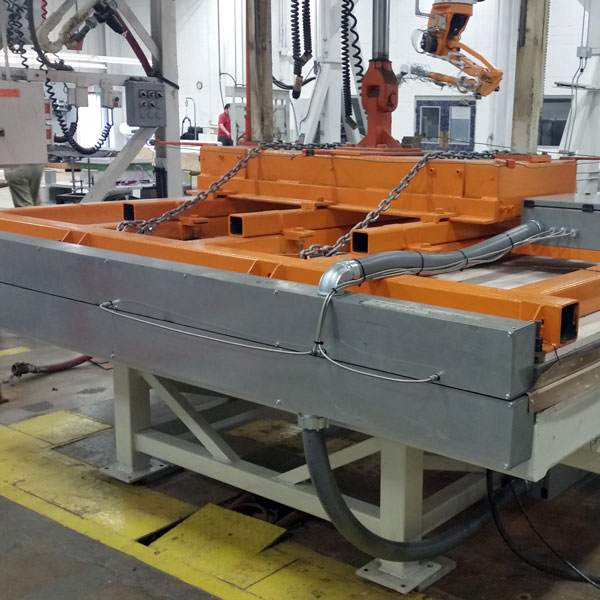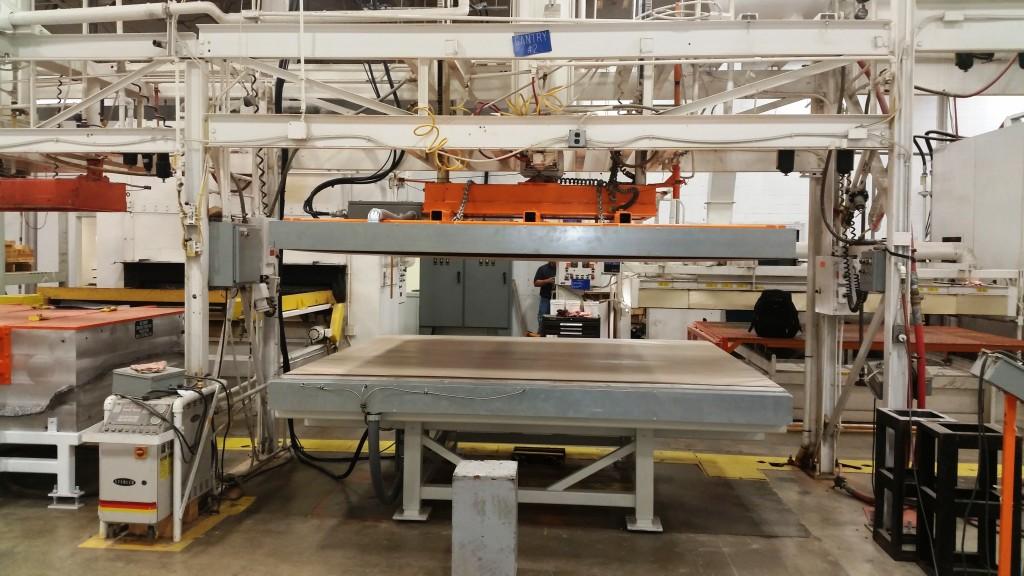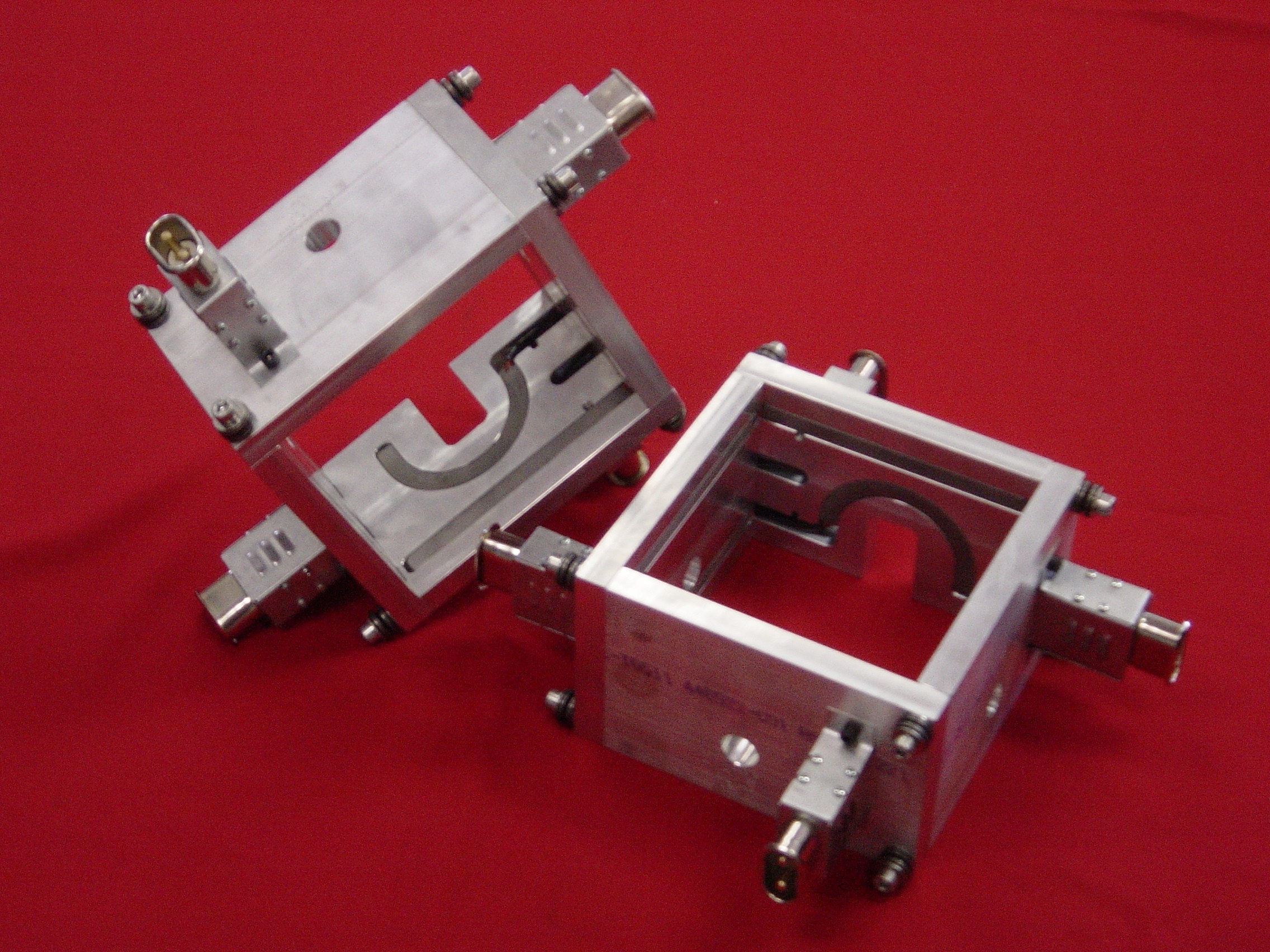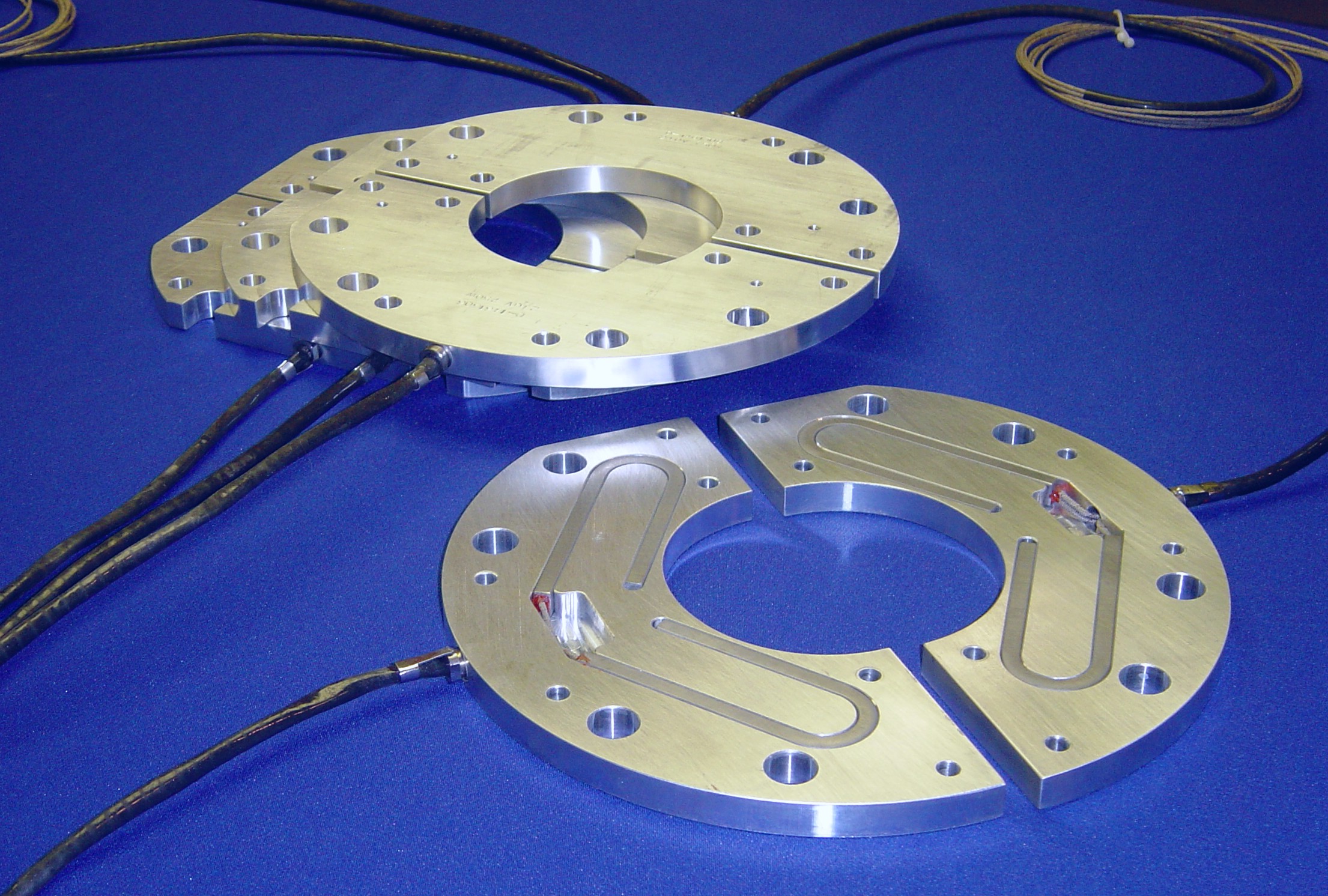MACHINED PLATE HEATERS
HEATED PLATENS
STS offers a unique high temperature platen heater to extend the range available for a machined heater. The heater body is typically constructed of stainless steel, however other materials such as Nickel, Inconel®, or Copper can be used. The assembly is provided as a single component. A precise groove is machined into the heater body determined by the heat profile requirements of the surface. A mineral insulated heating element is press fit into the groove to guarantee intimate contact with the heater body, which optimizes heater life and temperature uniformity of the working surface. An available vacuum braze treatment is also available. In addition to high temperature platens, these units can be manufactured as pedestals and welded as vacuum tight.
Please contact engineering for assistance
PLATE HEATERS
Precision plate and component heater assemblies are designed for a wide range of extrusion, molding and packaging applications. The rugged, high performance assemblies provide exceptional performance in the heating of extrusion profile dies, blow-molding manifolds and die heads, wire cross head dies, extruder barrels, polymer pumps, and injection molds.
ALUMINUM PLATE HEATERS
Cast-in plate(n) heaters are used in a wide variety of applications, which require a uniform heat source such as plastics, packaging, foodservice, and medical applications. Due to the flexibility of design parameters, these heaters are can be developed to suit specific sizes and heat patterns as the application dictates. The platens can be supplied with a thickness as small as ½” with surface finishes that range from “as cast” to a ground finish. Other options include mounting holes or bosses, threaded holes, cast-in stud terminals, recessed terminal exits, or special machined patterns on the platen surface. Special termination options such as lead wire extensions, quick disconnect plugs, or terminal boxes can be adapted to platen designs. Although aluminum is the predominant material used in heated platens, bronze alloys can be used for applications, which require higher temperatures. In addition, cooling tubes can be added for liquid cooled temperature control.








